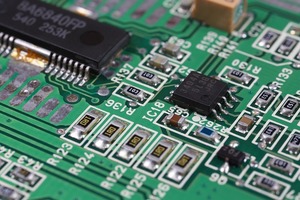Common Challenges Solved by a Custom Transformer Designer
الجسم
In the realm of electrical engineering, transformers are vital components that ensure the efficient transfer of electrical energy between circuits. However, the complexity and specificity of modern electrical systems often present unique challenges that standard transformers cannot address. This is where a custom transformer designer becomes invaluable. Custom transformer designers tackle a variety of challenges by tailoring their designs to meet specific requirements, thereby enhancing performance, reliability, and efficiency. Here are some common challenges solved by custom transformer designers:
1. Handling Unique Electrical Specifications
Modern electrical systems often have unique electrical specifications that off-the-shelf transformers cannot meet. These specifications include particular voltage levels, current capacities, and frequency ranges. Custom transformer designers work closely with clients to understand these unique requirements and develop transformers that precisely match the needed specifications. This tailored approach ensures optimal performance and reliability, reducing the risk of malfunction or inefficiency.
2. Optimizing Size and Weight Constraints
Space and weight constraints are common challenges in many applications, particularly in aerospace, automotive, and portable electronic devices. Standard transformers are often too bulky or heavy for these applications. Custom transformer designers address this issue by developing compact, lightweight transformers that fit the available space without sacrificing performance. Through innovative design techniques and the use of advanced materials, these custom solutions meet stringent size and weight requirements, enabling seamless integration into the intended application.
3. Enhancing Efficiency and Reducing Losses
Efficiency is a critical factor in transformer performance, especially in applications where energy conservation is paramount. Custom transformer designers focus on minimizing energy losses through advanced core materials, optimized winding techniques, and improved thermal management. By reducing core losses and enhancing overall efficiency, these designers help clients achieve better energy utilization, lower operational costs, and a reduced environmental impact.
4. Ensuring Thermal Management
Efective thermal management is essential for maintaining the reliability and longevity of transformers. Excessive heat can lead to insulation breakdown, reduced efficiency, and premature failure. Custom transformer designers incorporate advanced cooling techniques, such as liquid cooling systems, heat pipes, and high-conductivity materials, to manage heat dissipation effectively. These solutions ensure that transformers operate within safe temperature ranges, even under heavy load conditions, thereby extending their lifespan and enhancing performance.
5. Meeting Stringent Regulatory and Safety Standards
Various industries, such as medical, automotive, and aerospace, have stringent regulatory and safety standards that transformers must comply with. Custom transformer designers are well-versed in these regulations and ensure that their designs meet all necessary standards. This includes compliance with industry-specific safety certifications, environmental regulations, and quality benchmarks. By adhering to these standards, custom transformers provide a high level of safety and reliability, which is crucial for critical applications.
6. Adapting to Harsh Operating Environments
Some applications require transformers to operate in harsh or extreme environments, such as high temperatures, high humidity, corrosive atmospheres, or high-altitude conditions. Standard transformers may not withstand these conditions, leading to frequent failures and maintenance issues. Custom transformer designers develop robust solutions that can endure these challenging environments. They select materials and design features that resist corrosion, moisture, and temperature extremes, ensuring reliable performance and longevity in adverse conditions.
7. Integrating Smart Features
With the rise of smart technologies, there is an increasing demand for transformers that can monitor and report their own performance. Custom transformer designers incorporate smart features such as embedded sensors and monitoring systems into their designs. These smart transformers can track parameters like temperature, voltage, and current in real-time, providing valuable data for predictive maintenance and fault detection. This proactive approach helps prevent unexpected failures and optimizes maintenance schedules, thereby enhancing overall system reliability.
Conclusion
Custom transformer designers play a crucial role in overcoming the unique challenges presented by modern electrical systems. By addressing specific electrical specifications, optimizing size and weight constraints, enhancing efficiency, managing thermal performance, ensuring regulatory compliance, adapting to harsh environments, and integrating smart features, custom transformers deliver tailored solutions that standard transformers cannot match. Collaborating with a skilled custom transformer designer enables businesses to achieve superior performance, reliability, and efficiency in their electrical and electronic systems, paving the way for innovation and success in various industries.













تعليقات